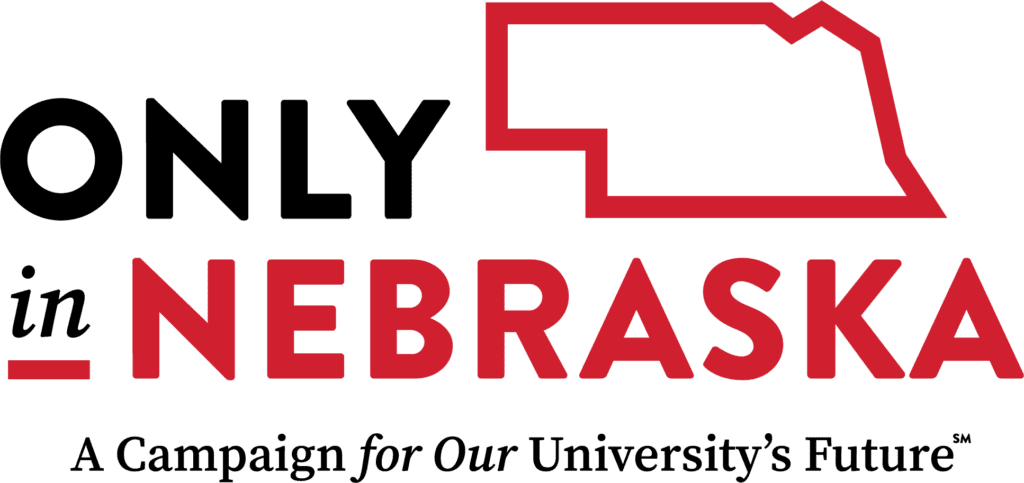UNK poet remembers white shadows in the grass
The boy’s feet disappear in the dust.
With each step, they sink until he can see them no more and then he pulls them up, watching the dust fall away. It’s the Dust Bowl Days in Custer County, Neb., years deep into the Great Depression. Ansley, the closest town, is a long way from his grandmother’s farm. But the boy loves these summer walks beside her.
The kingbirds sing in the small cemetery on the edge of town, and so does she:
You take the high road and I’ll take the low road
and I’ll be in Scotland before ye!
His grandmother a bird of a woman in her bib overalls – maybe 88 pounds at the most. Her dead husband left her with 140 acres of poor land to farm alone. Yet she slaps a crowbar on her thigh as she walks through the dust of her life and sings happy songs.
Only happy songs.
XXX
The boy became the poet and living UNK legend, Don Welch, and those summers became etched into his “hidden head,” as he calls it – that place in the unconsciousness where memories live and poets know to go.
“My grandmother was one of those spirits who have survived very, very difficult and tragic lives, yet she was born congenitally happy,” he says. “Emily Dickinson has this phrase, ‘sumptuous destitution.’ We were so destitute.
“But that time in my life was so sumptuous.”
He walks on the concrete of the UNK campus this late summer day. People see him and he stops to chat. He walks to a bronze statue of a man that stands just south of the library, a happy-looking man with glasses, an open book of poetry, and these words at his feet:
Don Welch.
Teacher. Poet.
Few people ever earn a statue for their life’s work. He has one. (And maybe few people of his stature who have a statue would ever do what he does next – pretend to wipe off the pigeon poop.)
“It’s my job to keep the bird doo-doo off my own head.”
He laughs.
“Which is kind of a labor of love, really.”
He’s grateful to the anonymous donor who gave the money for it, he says, and to his professor friends who pushed for it. He’s grateful for all the people who’ve walked beside him throughout his life and inspired him in his career, which has been a labor of love.
Welch was the Martin Distinguished Professor of English and the Reynolds Chair of Poetry at UNK. His many national honors include the prestigious Pablo Neruda Prize for Poetry, judged by the poet William Stafford. He’s written 14 books of poetry. Some have been translated into other languages.
His friend and fellow Nebraska poet, former U.S. Poet Laureate Ted Kooser, once said this about him:
Don Welch lives in Nebraska and is one of those many talented American poets who have never received as much attention as they deserve. His poems are distinguished by the meticulous care he puts into writing them, and by their deep intelligence.
In 2013 Welch, a UNK alumnus, retired from teaching at UNK after 50 years.
“The 50 years went by very, very quickly,” he says. “I mean, amazingly quickly. I genuinely loved what I was doing and I got to read and talk about the best books. In a sense, I got to be a paid student for about 50 years.”
Over those years he helped his students unlock their own hidden head. He encouraged them to fall in love with the “long shelf of literature” – the works of great writers like Shakespeare and Petrarch that have stood the test of time.
How?
“First of all, you try to teach it as passionately, as enthusiastically as you can,” he says. “If they pick up on that, that’s very good. Then if you show them that the greatest writers in the world wrestle with some of the greatest joys and the greatest problems, they can begin to see that the seminal messages coming from those books are as applicable to their own lives as anything anybody can tell them – in fact, they may be more applicable because they are more beautifully told, they are more truthfully told, and they are good things to keep in your mind.”
The main reason you read anything, he says, is to change your life.
Every great poem, he says, begins with a locale – it speaks about an immediate place. Every great poem never forgets its parent. “But then that poem, like a child, can go into the world at large and end up thousands of miles away from where it was parented.”
So if the life of Don Welch were a poem, maybe it’d begin in the dust of Custer County, walking alongside his grandmother.
XXX
He still walks with her.
It may sound loony, he says, but he still walks with her and with other great people who’ve inspired him along the way. They walk together in parallel worlds. They talk. Those people remind him of things that have happened in his life. Sometimes he sees their “white shadows in the grass.”
Sometimes, he’s a kid again helping his grandmother fix fence.
“One time, she asked me to pull the bar tight. The wire was just rusted and rotten and I pulled the wire too tight. And as anybody who has fixed barbed-wire fence knows, you do this and the wire is going to find you. It inevitably finds you. Well, it came back and it ripped right across the back of her hand. She was bleeding profusely, and she took her bandana off and wrapped her hand up. I thought to myself, ‘What is she going to say to me?’
“And she looked at me and in the quietest voice said, ‘Don, don’t pull the bar so tight next time.'”
He’s a tinkerer. He likes to go back into his poems and fix them. Few, he feels, are unchangeable. But one is.
“Funeral at Ansley.”
Now, standing beside his sculpture on campus, the teacher and poet opens a book and reads that poem aloud. It begins in a small cemetery on the edge of town.
“… I write of one woman who lies a last time in the long sun of August, uncramped by the wind which autumns each one of us …”
The kingbirds sing as he stands again in that moment, his grandmother’s headstone at his feet. She sings again, too.
Faculty support is one of the top priorities of the Campaign for Nebraska, now in its final year. If you would like to help support star faculty members like Don Welch, please consider giving online or contact the foundation at 800-432-3216.





